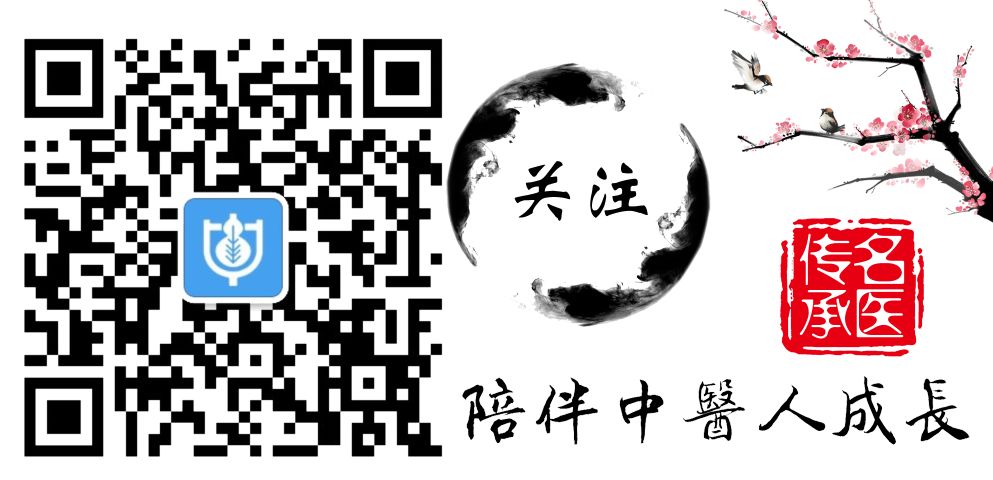Introduction:The Zeng Ye Tang (增液汤, Fluid-Generating Decoction) has the effect of generating fluids and moistening dryness. It is primarily used to treat Yangming warm disease and deficiency of body fluids leading to constipation, characterized by hard stools, thirst, and a dry red tongue. Patients with deficiency of body fluids and constipation can choose this formula for treatment.Zeng Ye TangAuthor: Li Caiyun[Original Text]In Yangming warm disease, without symptoms of the upper jiao, if there is no bowel movement for several days, one should use purgative methods. However, if the patient has a deficiency of yin, one should not use Chengqi Decoction but rather Zeng Ye Tang. After taking Zeng Ye Tang, observe for 24 hours; if there is still no bowel movement, combine it with Tiao Wei Cheng Qi Tang (调胃承气汤, Regulating Stomach Purgative Decoction) for a gentle effect. The formula for Zeng Ye Tang (salty, cold, bitter, sweet method): 1 liang of Yuan Shen (元参, Scrophularia), 8 qian of Mai Dong (麦冬, Ophiopogon, with heart), and 8 qian of Xi Sheng Di (细生地, Rehmannia). Use 8 cups of water, boil down to 3 cups, and if thirsty, drink it all. If still constipated, prepare another dose.[Explanation]In Yangming warm disease, without upper jiao symptoms, if there is no bowel movement for several days, one should use purgative methods for treatment. If the patient has a deficiency of yin fluids, even if there is constipation, Chengqi Decoction should not be used; instead, Zeng Ye Tang should be administered. After taking Zeng Ye Tang, observe for 24 hours; if there is still no bowel movement, it can be combined with Tiao Wei Cheng Qi Tang for a gentle purgative effect to harmonize the stomach qi and facilitate bowel movements.The above discusses the purgative methods applicable to Yangming warm disease, establishing three treatment methods: for heat accumulation in the intestines and significant yin fluid depletion, Da Cheng Qi Tang (大承气汤, Major Purgative Decoction) should be used; for heat accumulation in the intestines with less significant yin fluid damage, Tiao Wei Cheng Qi Tang should be used; and for cases with significant yin fluid depletion and less heat accumulation, Zeng Ye Tang should be used. This emphasizes the importance of protecting yin fluids and preserving body fluids in patients with warm disease.[Clinical Application]Zeng Ye Tang has the effect of generating fluids and moistening dryness, primarily treating Yangming warm disease and deficiency of body fluids leading to constipation, characterized by hard stools, thirst, dry red tongue, and a fine, rapid or weak pulse. This condition is due to pathogenic heat depleting body fluids, leading to yin deficiency and dryness, which cannot moisten the intestines. Therefore, it heavily utilizes Xuan Shen (玄参, Scrophularia) for its salty, cold, yin-nourishing, and dryness-moistening properties, Sheng Di (生地, Rehmannia) for its sweet, cold, heat-clearing, and yin-nourishing properties, and Mai Dong (麦冬, Ophiopogon) for its sweet, cold, lung and stomach-nourishing properties. These three herbs are salty, sweet, and cold, nourishing yin, generating fluids, and clearing heat, hence the “salty, cold, bitter, sweet method.” Adjustments: If the deficiency of body fluids and dryness-heat is severe, and after taking Zeng Ye Tang there is still no bowel movement, one can add Sheng Da Huang (生大黄, Rhubarb) and Mang Xiao (芒硝, Glauber’s salt) to clear heat and promote bowel movements, softening hardness and moistening dryness.[Case Studies]1. Case of Meng Jingchun: A 25-year-old female presented with dry and hard stools, having a bowel movement every 4-5 days, with hard texture, thirst, scant menstrual flow, normal urination, and normal appetite. Her tongue was red with thin coating, and her pulse was fine and slightly rapid. After consulting a teacher of warm disease, she was prescribed: Sheng Di Huang (生地黄) 30g, Xuan Shen (玄参) 50g, Mai Dong (麦冬) 30g, Sha Ren (砂仁) 3g, Rou Cong Rong (肉苁蓉) 18g, Gua Lou (瓜蒌) 60g, Ma Zi Ren (麻子仁) 25g, for 7 doses. After ineffective treatment, she consulted Professor Meng Jingchun, reporting no change in symptoms and persistent constipation. Professor Meng prescribed: Xuan Shen 15g, Sheng Di Huang 12g, Mai Dong 10g, Dang Gui (当归) 12g, Rou Cong Rong 20g, Bai Zhu (生白术) 30g, Hei Zhi Ma (黑芝麻) 30g, Zhi Wan (炙紫菀) 20g, Yu Li Ren (郁李仁) 15g, Sheng Mai Ya (生麦芽) 20g, for 7 doses. Bowel movements occurred once daily, tongue was red and slightly pale, and continued with 7 more doses for follow-up. The prescription was: Xuan Shen 12g, Sheng Di Huang 12g, Dang Gui 12g, Rou Cong Rong 20g, Bai Zhu 40g, Hei Zhi Ma 30g, Zhi Wan 12g, Yu Li Ren 15g, Chao Zhi Ke (炒枳壳) 10g, Sheng Mai Ya 20g, Lai Fu Zi (莱菔子) 10g, Xing Ren (杏仁) 10g.2. Case of Yang Jin: Treated a patient with habitual constipation for over 10 years, aged 55, presenting with dry mouth, excessive thirst, weight loss, five hearts heat, red tongue with little coating, and bowel movements once a week or longer, with difficult defecation requiring assistance from laxatives. Initially, due to typical signs of yin deficiency, Wu Ren Wan (五仁丸, Five Nut Pill) and Ma Zi Ren Wan (麻子仁丸, Hemp Seed Pill) were used, but with poor results. Later switched to Zeng Ye Tang, but the effect was still not significant, requiring the addition of Da Huang (大黄, Rhubarb). Considering the patient’s infrequent bowel movements and the need for straining, it was determined to be a sign of qi deficiency in the intestines. Given the patient’s age, kidney qi was also considered deficient, so Huang Qi (黄芪) 18g and Rou Cong Rong 15g were added to the formula, resulting in good outcomes without needing to add Da Huang for bowel movements. After continuous treatment for over a month, the constipation was essentially cured.
Copyright Statement
-
This article is selected from “Essentials of Warm Disease Differentiation and Clinical Application,” published by Shanxi Science and Technology Press. Author: Li Caiyun. Reprinted from: TCM Book Friends Association. Cover image source: Yiban copyright-free images.
-
Copyright belongs to the relevant rights holders. If there are any improper uses, please contact us at any time.
-
The various prescriptions and formulas mentioned in this article are for reference and learning purposes only. Non-professionals should not use them blindly.

Great article! Highly recommended for everyone to read.


